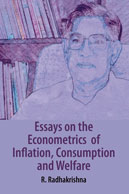New Releases...
Download Catalogue...
Download Excel Data
Download PDF Catalogue
You will get a Excel file with detail about catalogue.
You will get PDF file with detail about catalogue.
Detailed info...

Hard-cover • 2018
Pages: 450
ISBN: 9789332704213
US$89.95
+ Add to Cart
Publisher:
Academic Foundation
Role of Public Policy in Development Process
Emerging Socioeconomic Scenario in the Indian Economy
Niti Mehta‚ Anita Arya (Eds.)
About the Book
<p>What should be the contours of public policy for crucial sectors in the Indian context? The real debate today is about finding the right balance between market forces and government for Pareto efficiency. Stiglitz posited “that government could potentially almost always improve upon the market’s resource allocation.” In reality, besides the institutional inertia, fragmented design and action often impedes execution of rational policy. The lack of non-governmental inputs, absence of debate and systematic analysis prior to policy making results in ineffective policy formulation and action, obstructing the process of economic development. The study of public policy in commodity production (agriculture, industry), as well as tertiary sectors (services, trade and transport) is important to arrive at efficient and people friendly governance structures. </p>
<p>The collection of papers in the present volume, attempt at the development of an analytical framework for the formulation of development policy, bearing on crucial segments of the economy and society mainly, agriculture sector, industrial development, employment and entrepreneurship, urbanisation, weaker sections, and governance issues.<br />
Nineteen chapters comprising the volume are organised under four sections: Section 1 Issues in Agriculture Sector; Section 2 Industrial Development, Employment and Entrepreneurship; Section 3 Issues in Sustainable Urbanisation; Section 4 Governance Structure and Development Outcomes.</p>
<p>The papers appearing in the volume were presented at a seminar funded by the Indian Council of Social Science Research.</p>
Praise for this book
“This book is a very informative collection of papers focused on regional aspects of India’s growth. A few papers deal with the emerging concerns relating to inequality and growth. It is a must read for policy makers and researchers in Social Sciences.”
— R. Radhakrishna,
Chairperson, Madras Institute of Development Studies, Chennai.
“In the present economic environment when private sector is seen as a solution to most of our problems, this book has underscored the role of public policy in arriving at the right balance between the market and the government to reach social justice for people rather than social efficiency. This book has highlighted the role of public policy in the major sectors of our economy, and shown how well-designed policies can play a critical role even in our market oriented economy to reach optimum well-being of people.”
— Indira Hirway, Director and Professor of Economics,
Center for Development Alternatives, Ahmedabad.
“This volume brings together contributions from some of the best researchers in agriculture, industry, employment, urbanisation, drinking water, health and decentralised governance, all threaded together by insights into public policy and its impact on development and structural transformation. Students, researchers and policy makers will find, in this book, a fresh bearing on these issues in the perspective of changing contours of Indian economy.”
— S.R. Hashim,
Chairman, Institute for Human Development, New Delhi;
Chairman, Institute for Human Development, New Delhi;
Editor, IASSI Quarterly, Contributions to Indian Social Science.
“For anyone interested in India’s economy and policy responses, this
volume is a must read.”
— Tushaar Shah, IWMI-Tata Water Policy Program, Anand.
About the Author(s) / Editor(s)
<p><strong>Niti Mehta</strong> is Professor and officiating Director at the Sardar Patel Institute of Economic and Social Research (SPIESR), Ahmedabad. Prior to this, she was associated with the Agro-Climatic Regional Planning Project of the Planning Commission, wherein she was involved in formulating resource based decentralised agro-climatic plans for the country. Her research interests are: agriculture development, employment, agrarian growth and rural transformation, urbanisation and related areas. She has authored and co-authored several research papers in journals and books on these areas. Her books relate to hired labour in agriculture, sources of agricultural growth and total factor productivity, and human development at the district level. Prof Mehta is also a visiting faculty at CEPT University, Ahmedabad. She has an MA in Geography from Delhi School of Economics, MTech (Planning) from CEPT University, and doctorate in Economics from Gujarat University.</p>
<p> </p>
<p><strong>Anita Arya</strong> is an Associate Professor of Economics at SPIESR, Ahmedabad. Her areas of interest are: macroeconomics, agricultural economics, development economics, rural development, agricultural marketing, human development and industrial economics. She has coordinated courses in macroeconomics at the Institute for doctoral students/lecturers, and has been a resource person/observer in the research methodology courses, and macroeconomic courses sponsored by Indian Council of Social Science (ICSSR), New Delhi. She has authored/co-authored several research papers published in reputed journals and <br />
in edited books. Dr Arya is chief editor of the house journal, Anvesak.</p>
Contributors
Shrawan Kumar Acharya • Anita Arya • Mukul Asher • Kavita Baliyan • R.B. Bhagat • Narayana Billava • Zachary Burt • Atanu Chatterjee • Laxmi Kant Dwivedi • Ayse Ercumen • Bishwanath Goldar • Shiddalingaswami Hanagodimath • S.S. Kalamkar • Elumalai Kannan • Kalpana Kapadia • Mausam Kumar • Emily Kumpel • Sonu Madan • Dayashankar Maurya • Niti Mehta • Pulak Mishra • Saswat Kishore Mishra • Nayanatara S. Nayak • Kara Nelson • Ghanshyam Kumar Pandey • M. Gopinath Reddy • Sunil Sarode • Jayanta Sen • Ajit Kumar Singh • Shivani Singh • Surender Singh • K. Sivasubramaniyan • Mrutyunjay Swain • Charan Singh Verma.
Print Brochure...
Print as it is
Customised brochure
You will get a printout of what you see on your screen under 'Detailed Info'(Uneditable).
You will have the opportunity to edit the text and adjust the extent to fit on A4 size sheet or more accordingly as you desire. Plus, you can download the edited/customised Brochure or simply print it (CTRL + P).


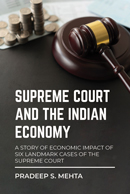




-web-194.jpg)
-front.jpg)
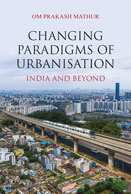









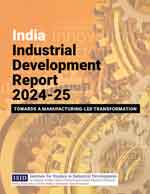
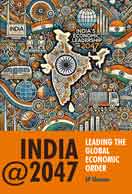
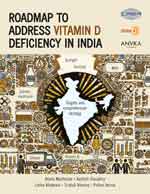
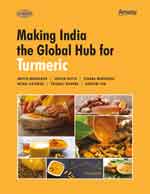
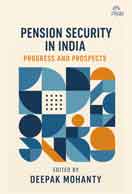
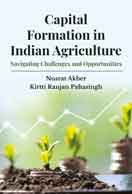









-COVER-web-194.jpg)





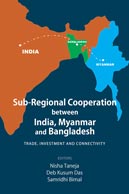










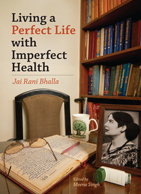












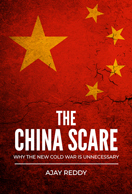
.jpg)






